Russia moves blood supplies to Ukraine border
Russia’s latest move on the Ukraine border is yet another indicator war is imminent as Moscow faced off with the US during UN talks.

Russia has moved blood supplies near Ukraine’s border adding fuel to fears war is imminent.
The move, first reported by Reuters on the weekend citing three US officials, would allow for the treatment of casualties should fighting erupt.
Ukraine’s deputy defence minister, Hanna Maliar, said the reports were false.
“Such ‘news’ is an element of information and psychological warfare. The purpose of such information is to spread panic and fear in our society,” she posted on Facebook.
But a White House official told CNN Kyiv is downplaying the threat.
“We understand the difficult position President Zelensky is in and the pressure he’s under. But at the same time he’s downplaying the risk of invasion, he’s asking for hundreds of millions of dollars in weapons to defend against one,” the official told the network.
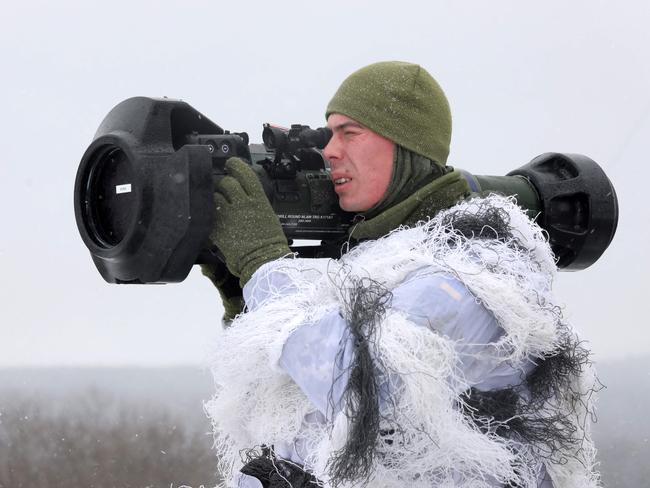
US-RUSSIA FACE OFF AT UN
Russia and the United States faced off on Monday, local time, at the UN Security Council over Moscow’s troop build-up on the Ukrainian border, as Western nations intensified their high-stakes diplomatic push to avert open conflict in Europe.
With tensions soaring, the United States had vowed to push back against any “disinformation” Moscow put forward in one of the most closely watched United Nations sessions in years.
The US-requested meeting came with fears growing of an imminent incursion into Ukraine, despite Kremlin denials.
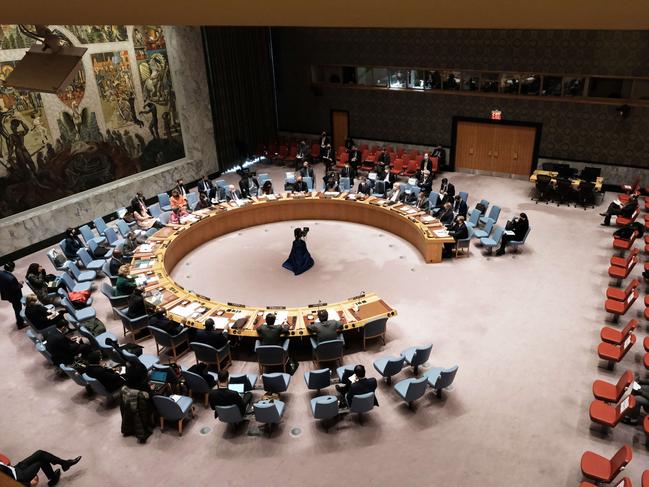
US President Joe Biden released a statement as the talks began, warning Russia that it was facing harsh reprisals unless it demonstrated openness to a diplomatic solution.
“If Russia is sincere about addressing our respective security concerns through dialogue, the United States and our allies and partners will continue to engage in good faith,” Mr Biden said.
“If instead Russia chooses to walk away from diplomacy and attack Ukraine, Russia will bear the responsibility, and it will face swift and severe consequences.”
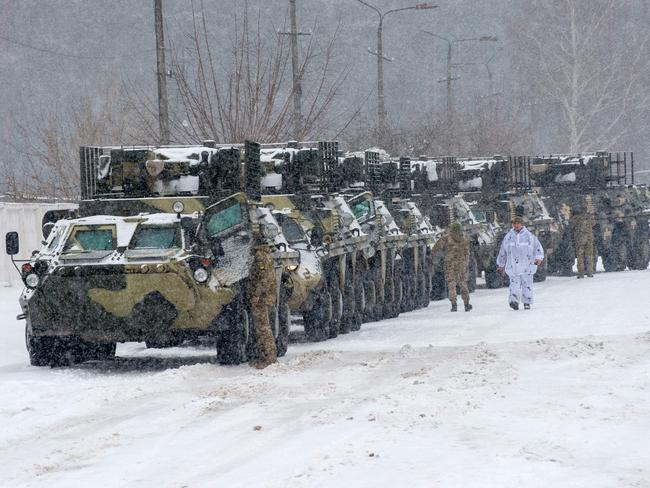
The New York Times reported that inside the UN, tempers flared to the level of a brawl with diplomats trading barbs: Russia accused the US of “an attempt to mislead the international community” while the US representative shot back, “Imagine how comfortable you would be if you had 100,000 troops sitting at your border.”
Russia had tried to block the 15-member Security Council from holding the meeting at all – with its envoy to the UN Vasily Nebenzya accusing the United States Monday of trying to “whip up hysteria” by pushing the debate.
But Washington’s UN envoy Linda Thomas-Greenfield said Moscow’s troop build-up justified the meeting, and Russia’s blocking move was rejected with 10 out of 15 members backing Washington.
“This is the largest … mobilisation of troops in Europe in decades,” the ambassador said. “And as we speak, Russia is sending even more forces and arms to join them.” She told the Council Russia’s military build-up had been paired with “aggressive rhetoric” as part of an escalation often seen from Russia when it seized Crimea in 2014.
And she accused Russia of planning to build its military force in Belarus to 30,000 within weeks as a part of its threat to Ukraine.
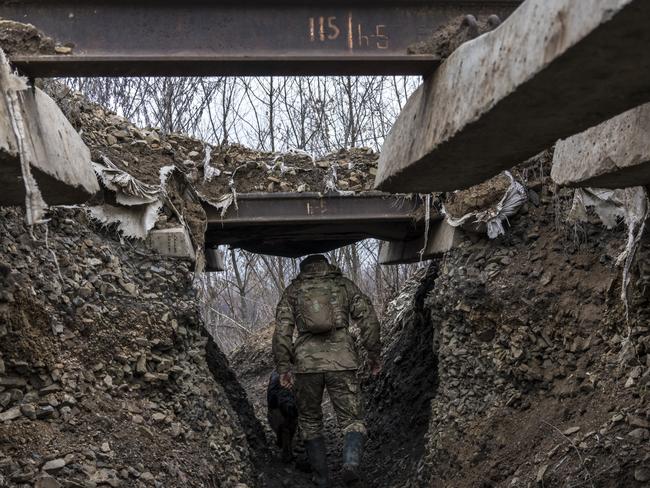
The United States and Britain on Sunday flagged new and “devastating” economic sanctions against Russia, as Washington and its allies step up efforts to deter any invasion.
With tensions soaring, the United States said it was prepared to push back against any “disinformation” Moscow put forward in what is expected to be one of the most closely watched United Nations sessions in years.
Russia on Monday is likely to try to block the 15-member council from holding its US-requested meeting, “but the Security Council is unified. Our voices are unified in calling for the Russians to explain themselves,” Washington’s UN envoy Linda Thomas-Greenfield told ABC News.
“We’re going to go in the room prepared to listen to them, but we’re not going to be distracted by their propaganda,” she said Sunday. “And we’re going to be prepared to respond to any disinformation that they attempt to spread during this meeting.”
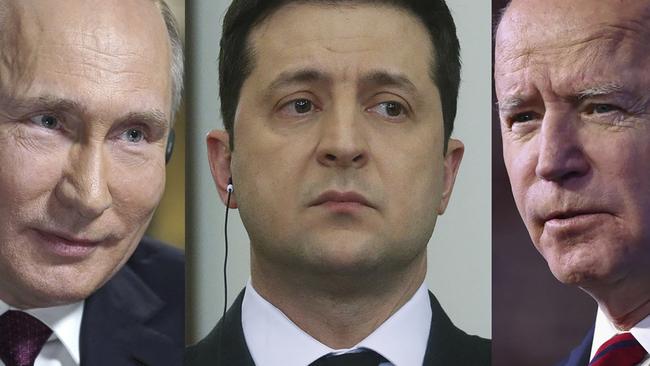
The chairman of the Senate Foreign Relations Committee took a tough stance, saying it was crucial Washington send a powerful message to President Vladimir Putin that any aggression against Ukraine would come at a very high cost.
“Putin will not stop with Ukraine,” Senator Bob Menendez said on CNN, indicating that penalties could be levied over actions Russia has already taken in Ukraine and warned of “devastating sanctions that ultimately would crush Russia” should Moscow invade.
In the face of the build-up, Ukrainian President Volodymyr Zelensky has called on the West to tone down the rhetoric.
That plea, from a country also eager for Western support – particularly since Moscow seized Crimea in 2014 and began fuelling a deadly separatist conflict in the country’s east – has raised eyebrows in Washington.
In London, Foreign Secretary Liz Truss said Britain would unveil sanctions legislation targeting “a much wider variety” of Russian economic targets.
The Kremlin on Monday denounced Britain’s move as an “undisguised attack on business”.
Analysts say an array of sanctions hitting Russian banks and financial institutions would not only affect daily life throughout Russia but could roil major economies in Europe and elsewhere.
Western leaders are pursuing a two-pronged approach, stepping up military assistance to Ukraine but also undertaking a full-court diplomatic effort to defuse the crisis.
Britain is preparing to offer NATO a “major” deployment of troops, weapons, warships and jets, Prime Minister Boris Johnson announced on Saturday. At the same time, he is expected to speak with Putin next week.
NATO Secretary-General Jens Stoltenberg on Sunday welcomed the increased military support while also endorsing London’s diplomatic initiative.
Canada on Sunday announced the temporary repatriation of all non-essential employees from its Kiev embassy. And its defence minister, Anita Anand, said Canadian forces in Ukraine were protectively being moved west of the Dnieper river.
It comes as relations between Russia and the West are at their lowest point since the Cold War.
But Russia has repeatedly denied posing a threat to the one-time Soviet republic and said Sunday it wanted “respectful” relations with the United States.
Citing NATO’s presence near its border, Russia has put forward security demands to Washington and the US-led military alliance.
They include a guarantee that NATO will not admit new members, in particular Ukraine, and that the United States will not establish new military bases in ex-Soviet countries.
AUSTRALIA READY TO RAMP UP SANCTIONS AGAINST RUSSIA
In another show of support for the Ukraine, Federal Finance Minister Simon Birmingham has said Australia “will not hesitate to upgrade” financial sanctions against Russia.
Speaking at a press conference in South Australia on Sunday, Mr Birmingham said Australia continued to urge Russia to “remove its military build-up along the Ukrainian border, to de-escalate tensions and to engage comprehensively in diplomatic dialogue to avert conflict occurring in the Ukraine.”
“We stand by the Ukraine in supporting their independence, their sovereignty, their rights,” he said.
“We’ve been very clear that Australia won’t be undertaking military deployments in relation to the Ukraine, that we won’t be having direct military engagement in that type of conflict, but that we will, of course, and are continuing to stay in close contact with many allies with countries across Europe and the United States and engaging carefully at a diplomatic level with the Ukraine to make sure that we provide what assistance we can.
“Australia already has sanctions in place against Russia because of the pressure that it’s put on the Ukraine, and those sanctions remain under constant review.
“And of course, we will not hesitate to upgrade them and undertake further sanctions if that’s warranted should Russia escalate this situation.”
BIDEN ‘SENDING TROOPS’ OVER RUSSIA, UKRAINE TENSION
US President Joe Biden has said he is sending American troops to Eastern Europe amid concern about a potential Russian invasion of Ukraine.
“I’ll be moving troops to Eastern Europe and the NATO countries in the near term. Not too many,” Mr Biden said at Joint Base Andrews in Maryland after returning from a trip to Pittsburgh.
Per the New York Post, Mr Biden did not identify which countries will host the US troops, but he’s repeatedly ruled out deployments inside Ukraine, which is not formally a US ally, not a member of NATO.
The Pentagon announced previously that 8,500 US forces were placed on “heightened alert” for potential deployment to Eastern Europe as part of a NATO show of support for smaller members of the military alliance.
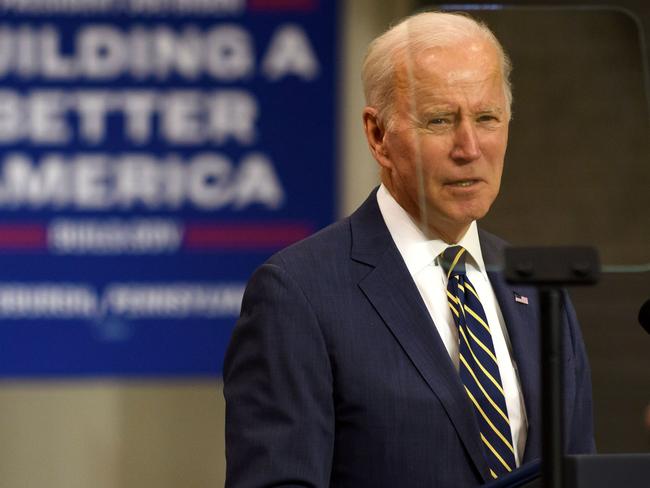
Three former Soviet republics — Estonia, Latvia and Lithuanian — and several former Warsaw Pact countries, such as Poland, are members of NATO after decades under Moscow’s control during the Cold War.
‘DON’T WANT A WAR’
Ukraine and Russia slammed the United State’s “panic” as Europe stepped in to avert war amid continued military build-up in the region.
While the White House said an invasion was a “distinct possibility” in February, Russia’s Foreign Minister claimed they “don’t want a war” and Ukraine’s president told Joe Biden to “calm down”.
It comes as French President Emmanuel Macron and Vladimir Putin agreed in crisis talks that there needs to be a “de-escalation” to avoid war, with NATO moving troops and jet fighters to its eastern flank in response to Russia’s 100,000-troop build-up.
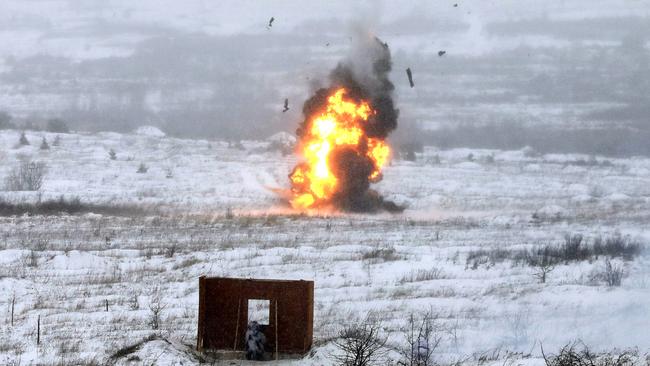
The White House was forced to deny reports that Biden told Ukrainian President Volodymyr Zelensk to “prepare for impact” and the Kiev could be “sacked” once the ground freezes over, allowing heavy equipment to roll in.
National Security Council spokeswoman, Emily Horne, said the reports in CNN that Biden said Russian troops were preparing to occupy the Ukraine capital were “not true”
“President Biden said that there is a distinct possibility that the Russians could invade Ukraine in February,” she said in a tweet.
He has previously said this publicly & we have been warning about this for months. Reports of anything more or different than that are completely false.
Mr Zelensky reportedly told Biden to “calm down the messaging” during the call, which has been disputed by those on both sides of the phone.
“I am the President of Ukraine. I am based here, and I think I know the details deeper than any other president,” Mr Zelensky said afterwards during a press conference.
“We don’t need this panic … I’m not saying that escalation is excluded, we have been talking about this for eight years now, it has happened already, the escalation already happened,” he added, referring to Russia’s invasion of Crimea.
Despite annexing Ukraine’s peninsula on the Black Sea, s Russia’s Foreign Minister Sergey Lavrov said they didn’t want further conflict but that they saw no room for compromise.
“While they say they won’t change their positions, we won’t change ours … I don’t see any room for compromise here,” Lavrov said in a Russian radio interview.
“There won’t be a war as far as it depends on the Russian Federation, we don’t want a war,” he added. “But we won’t let our interests be rudely trampled on and ignored.”
NATO chief Jens Stoltenberg, meanwhile, continued to prepare for a “wide range” of aggressive acts against Ukraine even as the western alliance and Moscow sought a peaceful resolution.
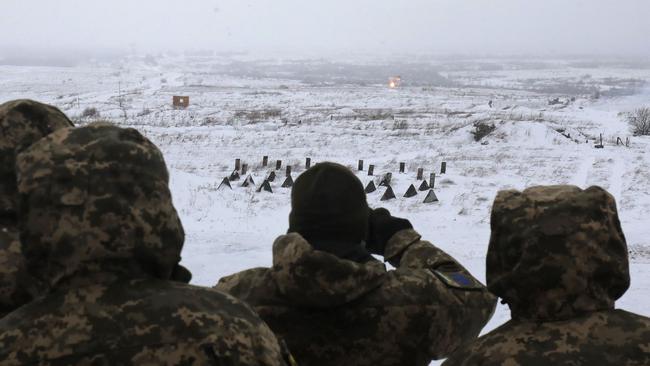
Stoltenberg told an event hosted by the US think-tank the Atlantic Council that Russia had several options available.
“Cyber (warfare) is one, coup efforts to topple the government in Kiev, sabotage — they have intelligence officers working inside Ukraine as we speak. So we need to be prepared for a wide range of different forms of aggressive actions by Russia against Ukraine,” Stoltenberg said.
“From the NATO side, we are ready to engage in political dialogue. But we’re also ready to respond if Russia chooses an armed conflict, confrontation. So we are ready for both options,” he added.
Originally published as Russia moves blood supplies to Ukraine border


